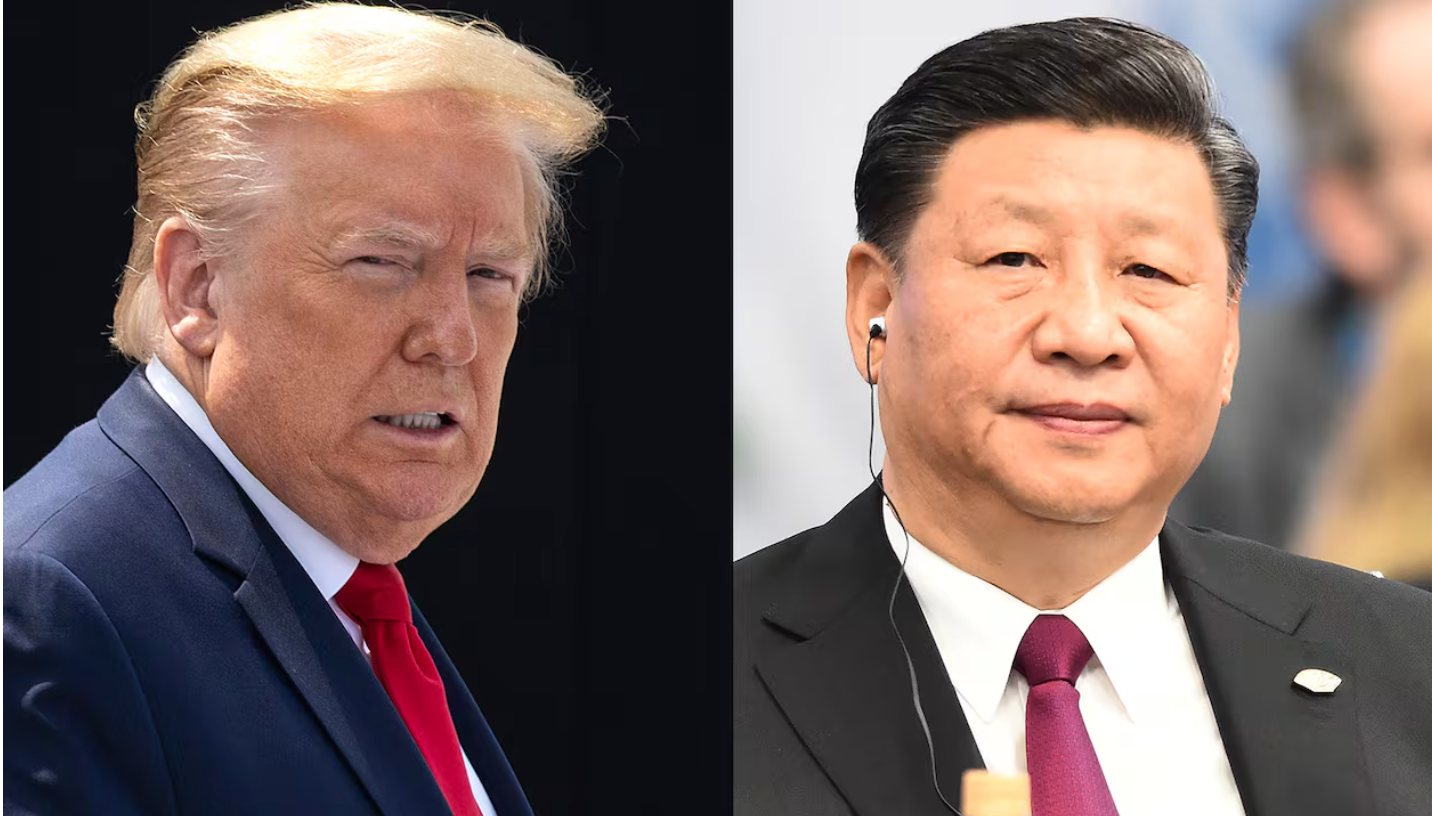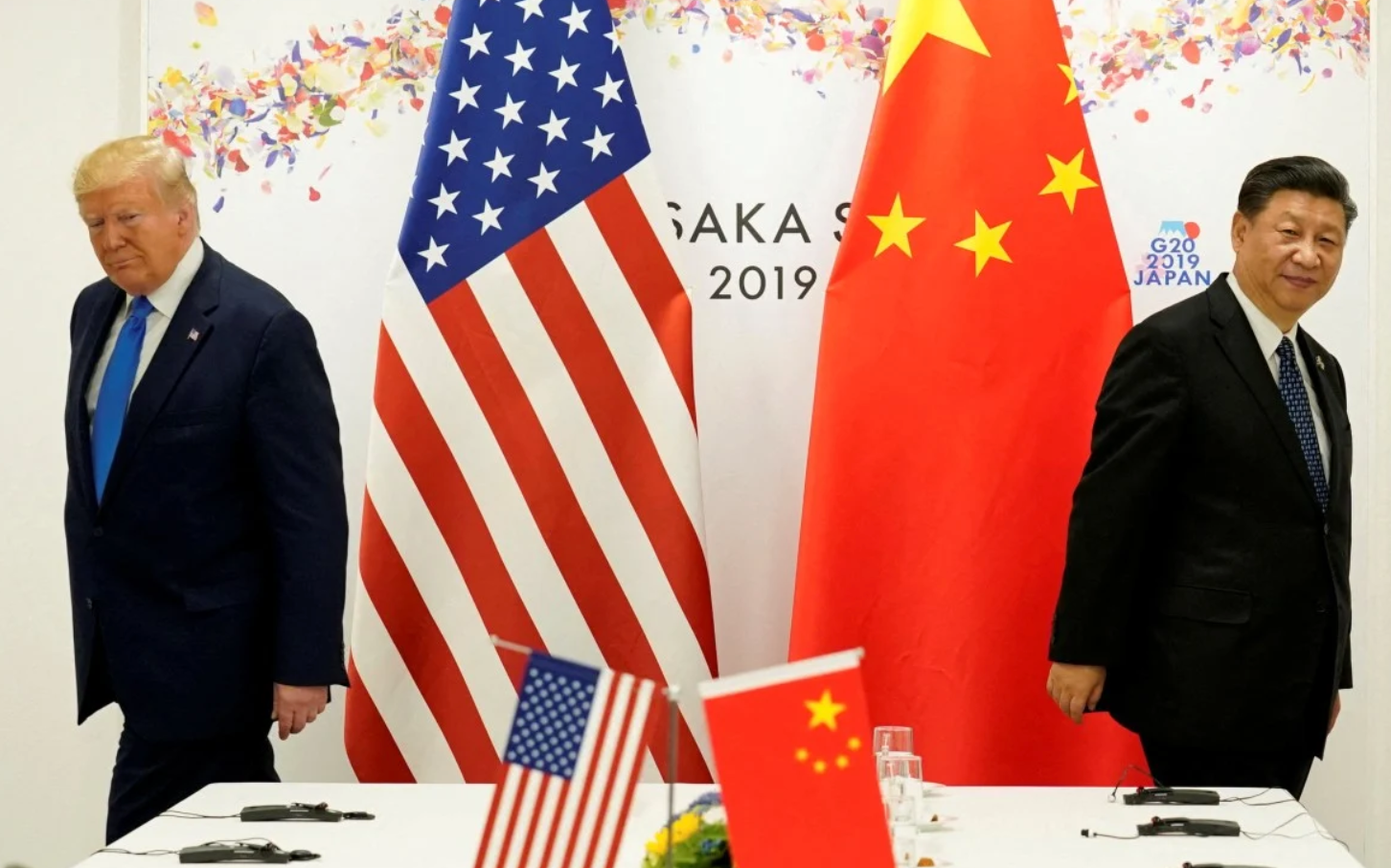US-China Summit: What future awaits the trade war?
As U.S. President Donald Trump and Chinese President Xi Jinping prepare to meet for the first time since 2019, Washington and Beijing appear poised to reach an agreement aimed at de-escalating the intense rivalry between the two countries.
Lost mandarin kidney weight
In recent days, some details of the proposed agreement between the two US-China leaders have been revealed, concerning avoiding escalating tensions. However, these are not considered terms that could reverse the trade war that President Trump launched during his first term and significantly expanded since his return to power for his second term. According to analysts, regardless of what agreement Trump and Xi Jinping reach on the sidelines of the APEC Forum in Gyeongju, there is no doubt that Washington and Beijing will continue to clash as they continue to compete for influence in a rapidly changing international order.

According to information revealed by US Treasury Secretary Scott Bessent, he expects China to postpone restrictions on rare earth minerals, and in return, the 100% tariffs that Trump threatened to impose on Chinese goods will “essentially be removed.” Bessent also predicted that China would agree to increase purchases of US-grown soybeans, enhance cooperation with Washington to stop the flow of chemicals used to produce fentanyl, and finalize a deal related to TikTok. While these details of the agreement may prevent further escalation of tensions in US-China relations, they essentially leave a range of tariffs, sanctions, and export controls hindering trade and business between the two sides in place.

Looking back, since Washington and Beijing reached a partial truce in their tit-for-tat tariff war in May, the average US tariff on Chinese goods has remained above 55%, while China's average tariff on US products hovers around 32%. The US has blacklisted hundreds of Chinese companies deemed national security risks, banning exports of advanced chips and critical manufacturing equipment related to artificial intelligence. Conversely, China has added dozens of US companies to its "unreliable entities" list, launched antitrust investigations into leading corporations like Nvidia and Qualcomm, and restricted exports of more than a dozen rare earth elements and metals, including gallium and dysprosium. Another reality is that US-China trade cooperation has significantly declined since Trump's return to the White House. China's exports to the U.S. fell 27% in September – the sixth consecutive month of decline – even as overall exports rose thanks to expanding trade with Southeast Asia, Latin America, Europe, and Africa. Meanwhile, U.S. imports of goods into China also fell 16%, continuing a downward trend since April.
Difficult sudden destroy
Analysts suggest that, with the US having no alternative to Chinese rare earth minerals in the short term, Washington and Beijing may be able to set aside their differences for a longer period than previous trade truces. This means that the "negative risks" in US-China relations will lessen for at least a year, or longer. However, some argue that while this summit may yield positive "tactical results," it will not mark the end of the US-China trade war. This also means a comprehensive trade agreement is still out of reach! Instead, the summit's outcome is expected to open the door to further negotiations for a more lasting and sustainable agreement – should President Donald Trump visit China next year.

This prediction stems from the language that US and Chinese leaders have frequently used in recent times when discussing bilateral relations, highlighting the significant differences between the two sides. While Trump often complains about the US being "taken advantage of" by China, Xi Jinping has repeatedly called for the relationship between the two countries to be defined by "mutual respect" and "mutually beneficial cooperation." Chinese experts also argue that the US should treat China in a way that Beijing considers respectful. Furthermore, whether or not an agreement is reached, the Washington administration understands better than anyone that China still holds a dominant advantage in rare earth minerals. Meanwhile, a host of unresolved issues remain and are unlikely to be addressed frankly – let alone resolved – at the summit in South Korea. These include the trade imbalance, China's excess production capacity, security concerns in the South China Sea, and technological competition.
In reality, both sides are unlikely to have enough time to negotiate a deal during this meeting; instead, they will likely reach agreements on smaller packages of issues. The core reason is the continued lack of mutual trust, with both sides remaining wary of any unexpected "secret moves" from the other. This stems from long-standing systemic conflicts between China and the US that remain unresolved. Some even fear that if the two leaders are not well-prepared, both psychologically and in terms of bargaining chips, relations between the two sides will escalate; and then become difficult to control and "even worse." Most importantly, China's power is believed to be increasing, and with many superior advantages, it is not ruled out that it could surpass the US in the future!



